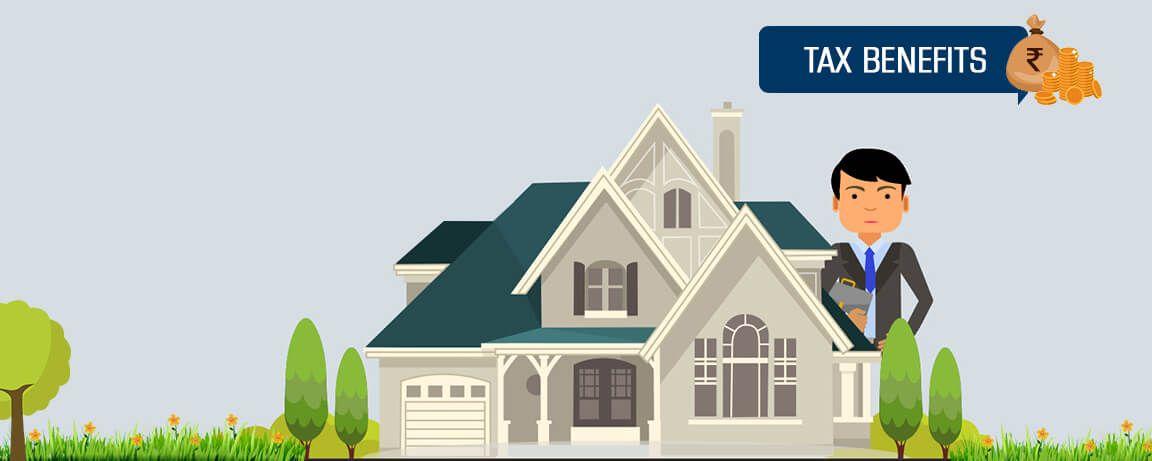How You Can Take Loans to Avail Tax Benefits
Loans often prove to be the easiest way to gain access to some additional funds when we need to fulfil financial obligations such as bearing the expenses of a wedding, pursuing higher education, purchasing a new home, or buying our dream car. While most loans need a long-lasting commitment, some of them also provide some incredible tax benefits, which helps ease the pressure off of us.
If you are looking forward to taking a loan in the near future, you may be delighted to know the benefits that you can reap on the tax front. To give you a faint idea of what lies ahead of you, let us simply point out that you can revel in tax benefits on almost all loan types including Home Loans, Personal Loans, Educational Loans as well as Car Loans. So, without further ado, let’s get straight to the point.
Tax Benefits on Home Loans
When it comes to taking a loan for building or purchasing a residential or commercial property, Section 24(b) of the Income Tax Act, entitles you to a deduction of up to 2 Lakhs per year, on the interest paid towards the Home Loan. While you may be aware of this fact, you may not know that this exemption is also applicable to the processing fee as well as the prepayment penalty charged by the lender.
Then again, if you have taken a loan from a friend, family member or acquaintance for the purpose of building or purchasing a property, you are entitled to the same tax benefits on the interest paid towards such credit. However, in this case, you must be able to furnish a proof of the arrangement, and of the fact that the loan amount is used for the said purpose only.
In this case, the loan deduction that you can claim for a self-occupied property is 2 Lakhs. The benefit in this case for senior citizens can go up as high as 3 Lakhs. For a property that is let out, there is no cap for the deduction allowance. If you are using more than one property as your own residence, you can claim a deduction of up to 2 Lakhs, on one of these properties. The remaining will be considered as let-out.
As far as tax rebates on the repaid principal amount are considered, Section 80C of the Income Tax Act entitles you to claim a benefit of up to 1.5 Lakhs. The tax benefit on Home Loan in this case for senior citizens can go up as high as 2 Lakhs. As is the case with benefits on interest, the stamp duty, as well as the registration charges, can be claimed for the rebate, under benefits for the principal repayment, albeit, only in the year of the payment. The refund on principal amount is null in case of a second home or property.
At this point, it’s important to note that these deductions on the principal repayment can only be claimed once the construction of the property is complete, and a completion certificate is obtained.
In case you co-own the house with your spouse, and you both enjoy separate sources of income, you can both claim the deductions under Section 80C as well as under Section 24(b) of up to 1.5 Lakhs, and up to 2 Lakhs respectively.
Tax Benefits on Personal Loan
More often than not, Personal Loans do not qualify for tax benefits. If however, you are using the loan amount for the purpose of constructing or purchasing a new house, or renovating an existing one, and can furnish a proof of the same, you can claim the benefit on the interest paid towards the loan under section 24 (b) of the Income Tax Act. Unfortunately, in this case, you won’t be able to claim the benefits on the repayment of the principal.
Then again, if you are using the disbursed loan amount to meet the expenses of your business or practice (if you are a self-employed professional), you can deduct the same from your net income, thus enjoying the associated tax benefits. In this case, however, you should be prepared to furnish the details, in case of scrutiny by the tax authorities.
Tax Benefits on Educational Loan
If you have procured an educational loan from a bank or anon-banking financial company (NBFC), you are entitled to get a full rebate on the interest paid for the first eight years, starting from the year when you start paying it. In order to claim the benefit, you ought to pursue your education in a government recognised institution. Moreover, the course that you are pursuing must also be recognised by the government. The course can be undergraduate, post-graduate, part-time or diploma, and must be sought after the successful completion of your higher secondary education.
The benefit can be claimed for your own education, as well as for that of your spouse and your children. Hence, it makes more sense to take a joint loan so that you are able to claim the returns for the person who falls in the higher tax slab.
Tax Benefits on Car Loans
Car Loans per se, don’t qualify for tax benefits, especially for salaried individuals. However, if you are a business owner or a self-employed professional, you may get a rebate on the interest paid on loan, if you can furnish proof that the vehicle is being used for business purposes.
For those owning or operating a transportation business, the interest paid towards all loans for vehicles being used in the business can be fully claimed for tax rebates.
Now that you are aware of the many benefits you can avail on the repayment of your loans, wait no more before you Apply for a Home Loan and fulfil your financial obligations, while reaping the advantages as you go along.

